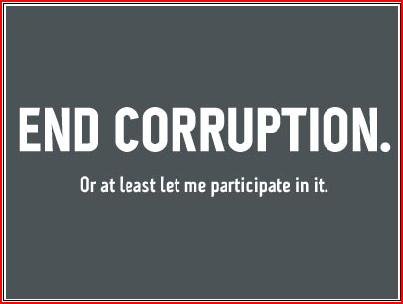You know, the more I think about it, the more I think the push toward making all the TARP recipients slash their dividends to near nothing was a bad idea.
I understand the reasoning for it -- cash-strapped entities that receive public assistance shouldn't be in a position to be able to make strong dividend payments to shareholders.
On the other hand -- this shows that some folks who were retired and living on dividend income are going to be screwed to the point of having to go back to work -- at a time when there are already far too many people looking to fill what few jobs are available. You've just taken the already bad odds of finding a j*b and made them worse.
Methinks the Law of Unintended Consequences is coming into play here. I get the populist argument and sentiment against allowing "bailout money" to be used for dividend payouts. But having thought on it longer, I'm not convinced it's good public policy; the last thing we need now is to force more people to become job-seekers.
But where do these financial companies get the money to pay dividends? Much of those dividends come from subprime mortgages, which are secured by overpriced houses that are now abandoned. Some even turned out to be slums unfit for human occupancy and were condemned for demolition, as detailed in another thread.
Companies HAVE to cut dividends, as they cannot print money like the government. In fact, they used to print their own money! Their printing presses are now called "toxic assets". There is no earning to support dividend payout, period.
See the following thread, which says unsurprisingly how the financial sector is the leader in dividend cut. Even Pfizer, a pharmaceutical, has to cut dividends.
http://www.google.com/hostednews/ap/article/ALeqM5jrGWP8ohlmysKCxa3zndjHxJ1jVwD95V9E7G0
The public has been fooled! But what makes me very upset is that in those years while the going was good, while the stock holders were grateful for the relatively meager 5 or 6% dividends, management of these companies pocketed tens or hundreds of million each.
Now that their coffers turn out to be empty, companies should not become a conduit for taxpayer money to become dividends, as if it were welfare. If assistance to the public is needed, it should not be routed through any company! I reported in another thread how AIG is paying $450M to 400 of its derivative traders as "retention bonus". Just last week, it was revealed that John Thain spent $1.2M to decorate his office.
About company or sector's lack of earning power, I often write about my experience with tech stocks in 2000. I am talking real tech stocks, like Motorola, Cisco, HP or Agilent, Lucent, stalwart leaders in their fields, not phony stupid idiotic fly-by-night dotcoms.
In 2000, I was blindsided by tech stocks the same way as people now taken aback by financials. Tech stocks paid no dividends, but their earnings were huge.
Not even shenanigan here like these stinky financials, but their record sales and profits were simply a once-in-a-lifetime event, due to the Internet growth and the Millenium euphoria. That era was over pretty quick, and I was able to recover (after losing half of my portfolio, which was not 100% invested, meaning my equities were down a lot more than 50%) by abandoning that sector to find greener pasture.


